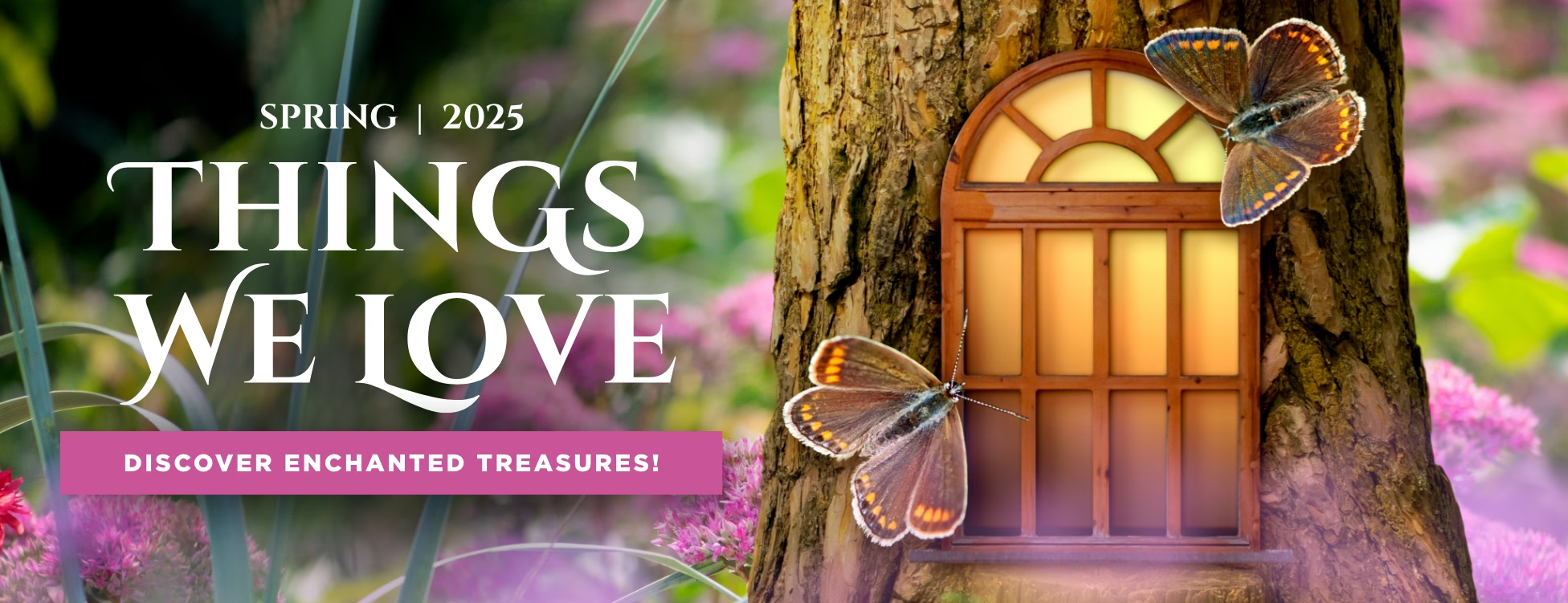“I have always imagined that paradise will be a kind of a library.” —Jorge Luis Borges
I remember my first vision of the paradise Borges imagined. My teacher had taken us to the children’s library in Montreal’s Notre Dame de Grace neighborhood to sign up for our first library cards.
I was seven. At first glance an unlikely paradise, the library then occupied a small space in the community center that also housed the local swimming pool, all within earshot of the teeming Décarie Expressway.
I chose a book with pages and pages of cat pictures, including what I now know to be the Egyptian goddess Bastet and a white Persian cat I dreamed of owning. I have never owned a white Persian cat, but I think of that book almost every day. And I remember the librarian, her pink lipstick and honey-colored hair set in stiff waves above her shoulders, the way she spoke to children as equals and fellow book lovers.
That experience is stamped on my memory, the joy and magic of holding that book in my hand, of being surrounded by all those books (were there millions?) I couldn’t read. Before I’d ever learned to sound out words, the library was already heaven.
I didn’t learn to read until that summer, visiting my grandparents in Georgetown, Prince Edward Island. My grandmother was the school secretary, which also put her in charge of the school library—enough to make her a librarian in my eyes and thus even more beloved to me than she already was. She made it her mission to teach me to read, bringing home primers and easy readers to help me practice. Then she introduced me to Georgetown’s tiny public library, in a room upstairs from the redbrick post office and filled with vanilla scented, three-color illustrated treasure. By the time I returned to Montreal and the library near the expressway, I was checking out my limit of books each month. My love of libraries—and librarians—began in small rooms, with kind women, dedicated to children and books. It grew to encompass multiple paradises.
Nobody is sure what the oldest library in the world is or which library was first, although there are some candidates. The al-Qarawiyyin Library in Fez, Morocco, is said to be the longest continuously running library. It was founded in 859, though only opened to the public in 2017, thanks to the work of architect Aziza Chaouni. The legendary great library of Alexandria, Egypt, one of my childhood fascinations, was host to scholars from throughout the Mediterranean and Middle East. Every claim about the library is controversial—from how many papyrus texts it held (40,000? 400,000?) to when it was
established (third or second century BCE?) to when and how it was destroyed. Still, its mythic legacy endures. In 2002, the Egyptian government founded a new Bibliotheca Alexandrina “dedicated to recapturing the spirit of openness and scholarship of the original” library.
Still, it was the establishment of public libraries that eventually opened the gates of paradise to seven-year-olds everywhere. The Biblioteca Palafoxiana in Puebla, Mexico, is the oldest public library in the Americas, founded in 1646 and housed in its present building since 1773. According to the American Library Association, the first public library in the United States is “in dispute.” Benjamin Franklin founded the Library Company of Philadelphia in 1731, with access by subscription, but the ALA notes that the first free modern public library opened in 1833 in Peterborough, New Hampshire. The Boston Public Library was “the first free municipal library in a large community,” founded in 1848.
Public libraries have often been referred to as the “people’s palace,” a term used to describe libraries from New York to Kansas City to Birmingham, UK. The phrase is sometimes attributed to Andrew Carnegie, the morally complicated steel magnate and philanthropist who founded and helped support more than 2,500 public libraries in the U.S. and Canada, partly in memory of the library he frequented as a boy in Pittsburgh. Although I can’t find any evidence for this attribution, Carnegie did say, “There is not such a cradle of democracy upon the earth as the free public library, this republic of letters, where neither rank, office, nor wealth receives the slightest consideration.” And he put his money where his mouth was, donating the funds for library buildings on the condition that communities raise taxes for upkeep and collections.
Carnegie money helped establish the Melrose Public Library in Massachusetts, where I worked through high school and college, shelving books in the glass-floored upper stacks, or at the front desk, where I came to know and love the library patrons: gentle Mr. Snow from Maine, who visited at least once a week; the gentleman from Edinburgh who looked a bit like Sean Connery and was reading his way through Sir Walter Scott; the sweet-faced young woman with her stack of Harlequin romances. I remember the librarians too: tough-talking, soft-hearted Marie, who waived everybody’s fines, and the two Dianes, one who knew everything about art and the other, my boss, whose smile and musical voice were the heart of the library.
At another Carnegie-funded library, the Somerville Public Library, I wrote my dissertation and first novel by a window that looked over hills and housetops and factories but not quite to the sea. As a young mother I took my children to story time. With Miss Anne and Miss Cathy, they learned to sing “Where Is Thumbkin?” and “The Eensy Weensy Spider,” took part in the summer reading program, and watched movies on the lawn in August. One October, Ellen in Reference planned a memorable Halloween party.
Paula Sakey, of the Boston Public Library Fund, notes that people have had first dates, gotten engaged, and even married at the city’s glorious Central Library—which offers $200 “equity weddings” so almost any patron can make use of the space. The library “lends itself to that kind of love,” she says, but also to the love of community, of humanity. Like many public libraries throughout the world, the Boston Public Library has social workers on staff and trains “empathetic” security workers to deal kindly with “housing-insecure patrons.” She calls the library an “antidote to the loneliness epidemic,” where you can sit in the beautiful Italianate courtyard—open to all—“and feel you’re not alone.”
Wherever I go, I look for the library. And when I’m there, I never feel alone. How can you be alone in paradise?
I’ve graded student papers in the Boston Athenæum, the subscription library once frequented by Nathaniel Hawthorne, with its fireplace and precious artworks. I’ve visited the original Winnie the Pooh toys at the New York Public Library and
hugged its famous stone lions, Patience and Fortitude. I’ve written essays like this one in the high-ceilinged reading room at Harvard. I cried for joy in the Library of Congress in Washington, D.C., just because I was there.
But paradise also exists in the libraries of small towns and city neighborhoods. Sometimes it’s at the center of everything, like the public library on the hillside above Littleton, New Hampshire, with its cozy children’s room and statue of Eleanor Porter’s Pollyanna. Sometimes it’s on a quiet street like the tiny two-room library twenty miles away in Lincoln, New Hampshire, presided over by a friendly librarian named Teasha. Maybe paradise sits by the river in the fishing community of Cardigan, Prince Edward Island, home to the smallest library in Canada, where loans are on the honor system. Or it could be in the North End neighborhood branch of the Boston Public Library, with its Italian language newspapers and marble relief of Dante Alighieri. Or maybe paradise travels through poor and rural communities in Mexico with the venerable Biblioteca Palafoxania’s mobile library project. Maybe paradise is a bookmobile in the Appalachian Mountains.
Where there are libraries, there’s no need to imagine paradise. It’s in a brick building near the expressway, next door to the public pool.
Regina M. Hansen is the author of the young adult novel The Coming Storm. Most days, you can find her in the library. Learn more at reginamhansen.com.




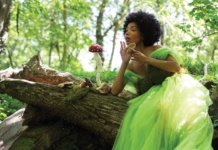
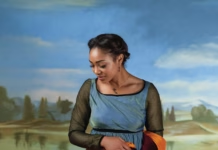
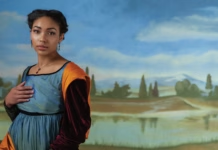




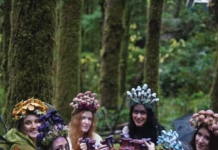

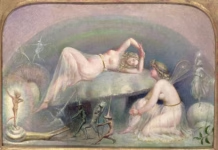

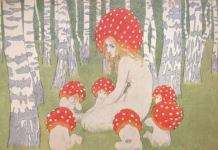

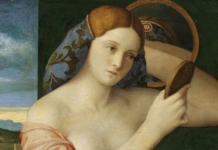

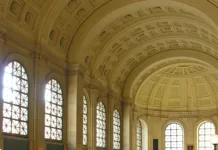
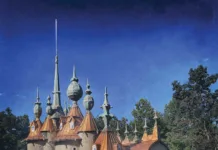






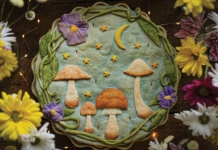
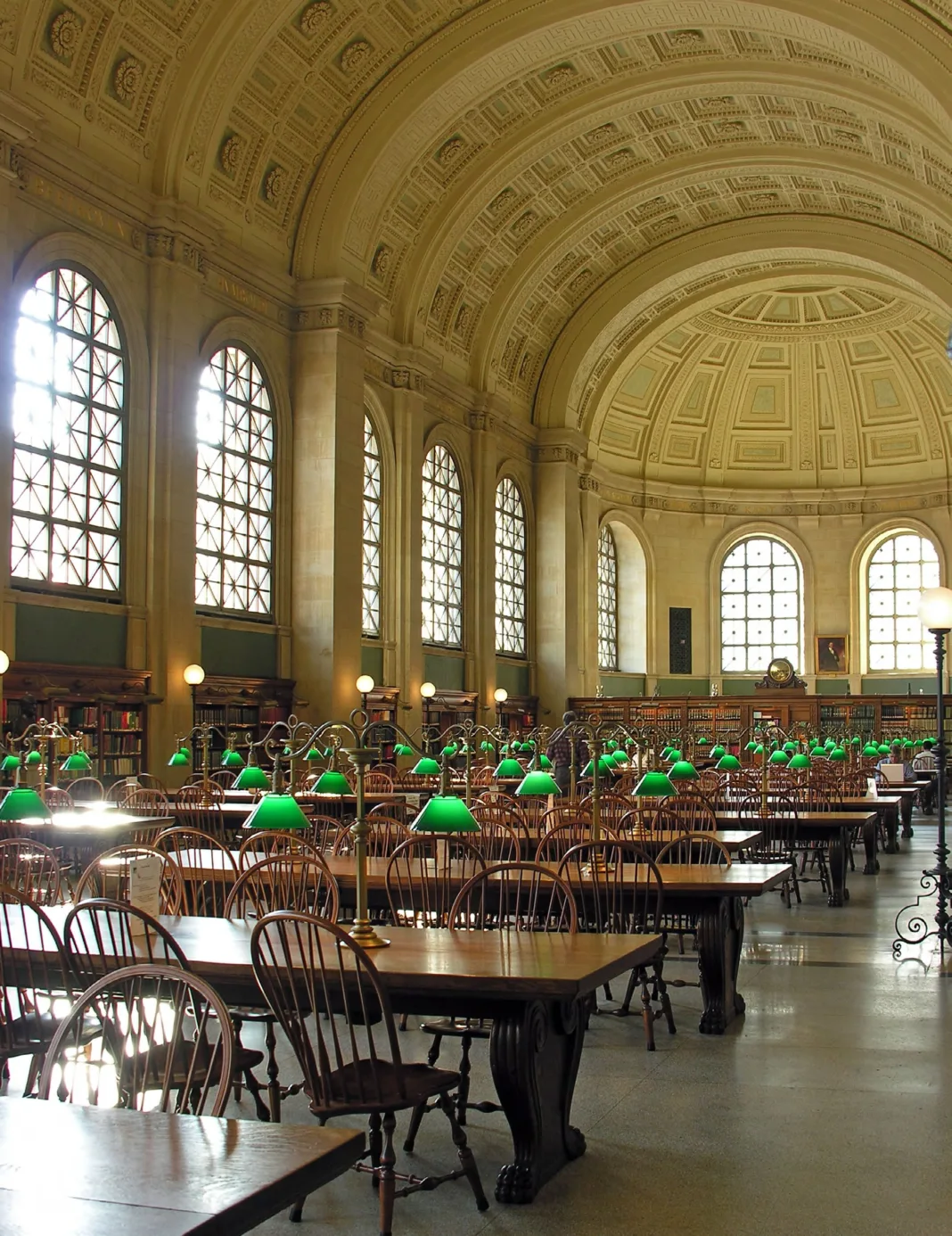
 Enchanted Living is a quarterly print magazine that celebrates all things enchanted.
Enchanted Living is a quarterly print magazine that celebrates all things enchanted. 